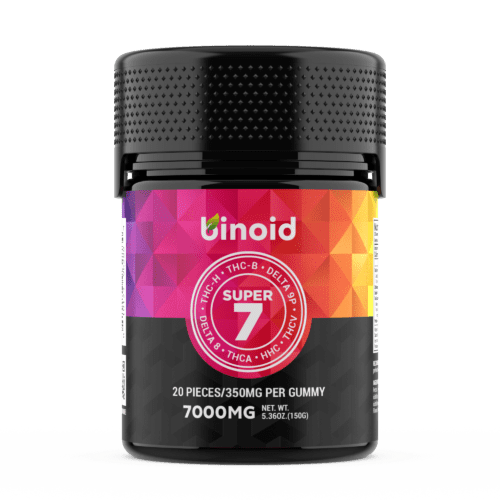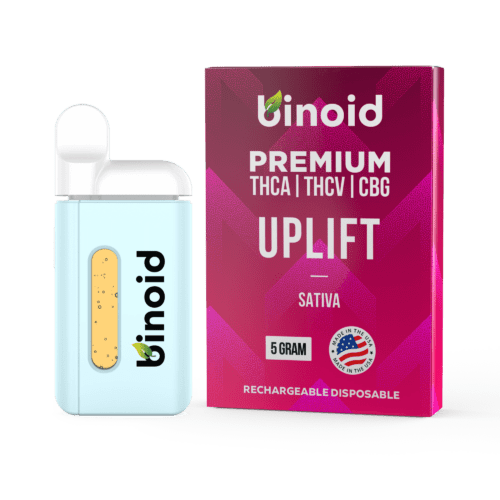THC-C, aka tetrahydrocananbiorcol, is a newly discovered cannabinoid that challenges our idea of what THC compounds are capable of. While there’s still a lot to learn about its properties and capabilities, we’re already seeing some fascinating information out there about how THC-C affects the human body and mind, leading us to wonder, how does THC-C actually work when it absorbs into the body?
To Buy THC-C Products Click Here
How Do Cannabinoids Work?
To appreciate how THC-C works, we need to better understand the fascinating relationship that all cannabinoids in hemp share with the body’s endocannabinoid system. The endocannabinoid system is a system found in all mammals, and its job is to use cannabinoids to regulate individual processes of the body, with the overarching goal of bringing us into homeostasis.
Throughout the body, you’ll find cannabinoid receptors, each one capable of regulating a specific process of the body, whether it be our sleep cycle, our mood, our inflammation levels, our pain tolerance, etc. Cannabinoid receptors are divided up into two categories: CB1 receptors, located in the nervous system, and CB2 receptors, located mainly in the nervous system, digestive system and immune systems. Some cannabinoids work more strongly with CB1 receptors, some work more strongly with CB2 receptors, and some work with both in a more balanced way.
When a cannabinoid absorbs into our body, it attaches to specific cannabinoid receptors, and this process enables the cannabinoid receptors to regulate specific processes that affect our body and mind. At the same time, specific cannabinoid receptors in the brain use cannabinoids to produce a psychoactive effect, and how strongly a particular cannabinoid attaches to those receptors determines the strength of the high, which explains why some cannabinoids are far more intoxicating than others.
-
Product on sale
 THCA Diamonds 1500mg – Live Rosin$30.99
THCA Diamonds 1500mg – Live Rosin$30.99$59.99
There are, in fact, more than 100 individual cannabinoids in the hemp plant, and each one plays its own role in interacting with the endocannabinoid system, which is why each cannabinoid ultimately feels and behaves differently. This is why getting high off of delta 8 can feel so different from getting high off of THC-P, for example.
Basically, each time we consume a cannabinoid, we’re bringing our bodies closer to homeostasis, although it’s safe to say that the majority of people who enjoy hemp’s intoxicating cannabinoids are more interested in its immediate intoxicating effects, which are undeniably enjoyable and can be extremely valuable to maintaining our mood, physical comfort levels and more on a daily basis.
How Does THC-C Work with the Endocannabinoid System?
One of the newest cannabinoid discoveries is THC-C, and what this means is that it’s one that we know very little about. Structurally, THC-C is identical to delta 9 THC, but missing 3 carbon atoms. This matters a lot, because the absence of these 3 atoms is the reason why THC-C is not intoxicating. This difference in chemical structure means that it’s unable to effectively act on CB1 receptors that trigger psychoactive effects, and so you can’t get high off of THC-C.
More interestingly, THC-C seems to be the first cannabinoid that we know of that increases uptake of naturally occurring cannabinoids in the human system – in other words, cannabinoids that the endocannabinoid system produces on its own to maintain a sense of equilibrium throughout the body. These receptors, known as TRP channels, play a critical role in the maintenance of homeostasis within the body.
-
Product on sale
 Super 7 Gummies – 7000MG$39.97
Super 7 Gummies – 7000MG$39.97$59.99
What Effects Can THC-C Offer?
THC-C is believed to feel a lot like CBD, but maybe more strongly. This means that those who have used THC-C have said that it has made them feel extremely at ease, with an easier mood and less discomfort and tension in the body. And this would make sense given what we know about how the cannabinoid works with the endocannabinoid system, in a completely one-of-a-kind way.
As for the specifics of its properties, those remain unknown. We’re still learning about THC-C, so we don’t have a strong understanding of how it directly affects things like pain, nausea, appetite and so on. We know that THC-C works closely with TRP channels including TRPA1.
Final THC-C Working Thoughts
Overall, THC-C is absolutely fascinating, in that it’s a THC cannabinoid that isn’t associated with a psychoactive high. In fact, it’s a great cannabinoid to try if you’re looking for something closer to CBD, in terms of its ability to offer deeply soothing effects without causing intoxication.






